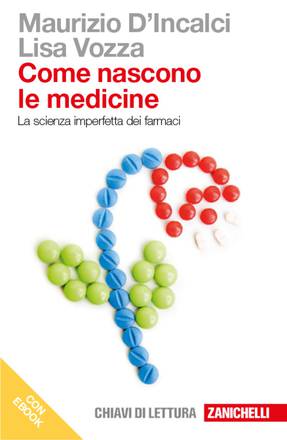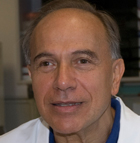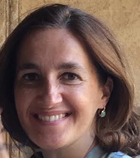The imperfect science of medicines

We ask 100% for safe drugs, but is it possible to achieve such a level of safety? What if a disease becomes curable at the price of some side effects?
We are not all the same and there is no drug without risk. Today the challenge is to design medicines tailored to individuals and their diseases. But designing a drug costs money and the patent is needed to repay the research costs: how does it work? How long does it last? And what happens when it expires?
Not every pill is a drug: supplements, homeopathic products and various "natural" substances are often not tested and therefore we do not know what they contain, nor if they are good or bad.

Maurizio D’Incalci, dirige il Dipartimento di Oncologia dell’Istituto di Ricerche Farmacologiche Mario Negri di Milano. Il campo della sua ricerca è la farmacologia di composti antitumorali, ha contribuito all’identificazione, allo studio del meccanismo d’azione e allo sviluppo preclinico e clinico di diversi farmaci che sono oggi utilizzati nella terapia clinica dei tumori. E’ autore di 475 pubblicazioni scientifiche e numerosi capitoli di libri, è nel comitato editoriale di numerose riviste scientifiche internazionali, nel comitato scientifico dell’Associazione Italiana per la Ricerca sul Cancro (AIRC), di diverse altre fondazioni e comitati etici di istituti scientifici nazionali ed esteri. Per Zanichelli nel 2014 ha scritto How medicines are born with Lisa Vozza.

Lisa Vozza è Chief scientific officer presso l’Associazione italiana per la ricerca sul cancro (AIRC) e una scrittrice e curatrice di libri di divulgazione scientifica. Per AIRC fa in modo che ogni progetto sottoposto all’Associazione sia valutato da almeno tre scienziati, scelti per competenza in un gruppo di circa 600 revisori internazionali. Per Zanichelli ha scritto nel 2007 In the minds of others with Giacomo Rizzolatti; in 2009 Vaccines of the global age with Rino Rappuoli in 2009 (Galileo Literary Award 2010); in 2014How medicines are born con Maurizio D’Incalci.Small misunderstandings between us animals is being prepared for 2015 with Giorgio Vallortigara. His blog Biology and surroundings it is followed by teachers and students. Previously worked for the European editions of Scientific American.
______________________________________________
Un ricercatore e un divulgatore scientifico si incontrano per raccontare in modo semplice l’importanza della ricerca sui farmaci e come si fa ricerca in questo settore. Ai farmaci è riconosciuta una grande importanza perché – è vero – in tante patologie, per tante persone, il farmaco ha fatto e fa la differenza in una storia di malattia. Un farmaco efficace e ben tollerato è senz’altro il sogno di ogni paziente.
The book tells and describes in a direct and simple way what are the stages of development of a drug. In doing so, D'Incalci and Vozza recount episodes, refer to stories of important discoveries and enter the lives of those who dedicate, or have dedicated, their lives to the discovery of new drugs, making a path that may seem only technical more humane.
All stages are well explained, from the initial stages to laboratory and animal research, to human stages. Chapter after chapter all the tiles of the story agree and lead the reader to clarify a world that we know is far, far away from the citizens.
Tip: If drug development is of interest, I would suggest after this read, address “Where the Evidence is” http://www.partecipasalute.it/cms_2/node/2479 a text where the drug is revisited in a more critical interpretation that moves from the many interests of the market.
Citizens must not only know everything about how medicines are created, but must use and contextualize this knowledge to deal critically and consciously with health issues.
Paola Mosconi
IRCCS-Mario Negri Institute
Related news: Where is the evidence?
